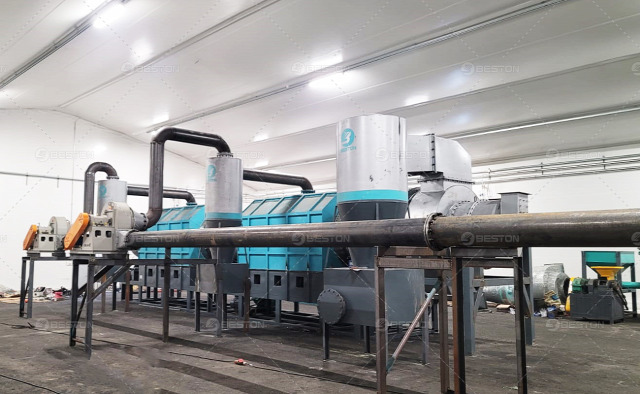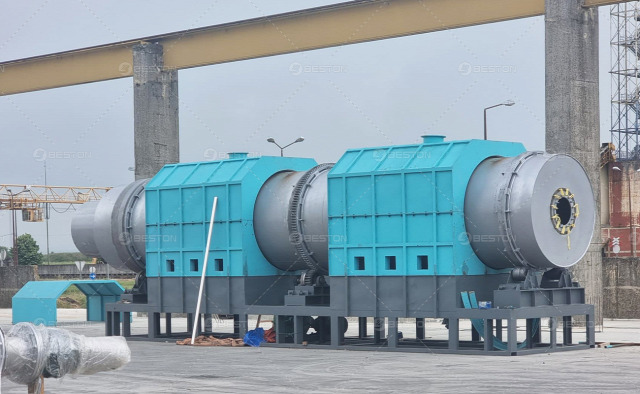Bamboo charcoal, derived from the fast-growing and versatile bamboo plant, has gained recognition for its myriad applications across different industries. In this post, we explore the diverse uses of bamboo charcoal and its contribution to sustainability and environmental well-being.

1. Odor Absorption and Air Purification:
Bamboo charcoal is renowned for its exceptional ability to absorb and neutralize odors. Its porous structure provides a large surface area for adsorption, making it an ideal natural air purifier. Placing bamboo charcoal in closets, refrigerators, or other confined spaces helps eliminate unwanted smells and maintains a fresh environment. Some people use the bamboo charcoal machine.
2. Water Filtration:
The porous nature of bamboo charcoal extends its utility to water filtration. Activated bamboo charcoal is effective in adsorbing impurities, chemicals, and contaminants from water, making it a sustainable and eco-friendly alternative for purifying drinking water. This application aligns with the growing demand for clean and safe water sources.
3. Soil Enrichment in Agriculture:
Bamboo charcoal serves as a valuable soil amendment in agriculture. When incorporated into the soil, it enhances water retention, improves aeration, and promotes nutrient absorption by plants. This sustainable agricultural practice contributes to soil health and fertility, reducing the reliance on synthetic fertilizers.
4. Skincare and Beauty Products:
The beauty industry has embraced bamboo charcoal for its detoxifying properties. In skincare products such as masks, soaps, and cleansers, bamboo charcoal helps draw out impurities, unclog pores, and promote a clearer complexion. Its natural origin appeals to consumers seeking eco-friendly and sustainable beauty solutions.
5. Sustainable Cooking Fuel:
Bamboo charcoal briquettes serve as an eco-friendly alternative to traditional charcoal for cooking. They offer a cleaner and more sustainable option, with the added benefit of being derived from a renewable resource. This application aligns with the global shift towards sustainable energy sources.
 6. Art and Craft:
6. Art and Craft:
Bamboo charcoal finds creative applications in the world of art and craft. Artists and craftsmen use it as a drawing medium due to its rich black color and smooth texture. Additionally, it can be incorporated into various art techniques, adding an eco-friendly element to artistic expressions.
7. Mosquito Repellent and Pest Control:
The absorbent nature of bamboo charcoal makes it an effective tool for mosquito repellent and pest control. Placing bamboo charcoal in strategic locations can help reduce unwanted insects and pests without resorting to harmful chemicals, aligning with environmentally conscious pest management practices.
8. Eco-Friendly Dehumidifier:
Bamboo charcoal's moisture-absorbing properties make it an excellent natural dehumidifier. Placing bamboo charcoal in closets, bathrooms, or other damp areas helps regulate humidity levels, preventing the growth of mold and mildew. This sustainable alternative reduces the need for electric dehumidifiers.
9. Eco-Construction Materials:
Bamboo charcoal can be integrated into eco-friendly construction materials. Its lightweight and durable properties make it a suitable additive for sustainable concrete production, contributing to the development of environmentally conscious building practices.
10. Carbon Sequestration and Environmental Conservation:
Bamboo itself is a powerful carbon sink, and the process of producing bamboo charcoal involves carbonization, which further sequesters carbon. Utilizing bamboo charcoal contributes to carbon reduction efforts and promotes sustainable forestry practices, aiding in environmental conservation.
In conclusion, the versatility of bamboo charcoal extends far beyond conventional uses. As a sustainable and renewable resource, bamboo charcoal aligns with the global shift towards eco-friendly alternatives in various industries. Whether it's purifying air and water, enhancing soil fertility, or providing sustainable energy sources, bamboo charcoal stands as a beacon of innovation in the pursuit of a greener and more sustainable future.

